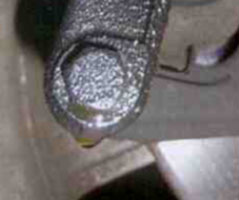
25th November 2015 | By Ray Tyler
4-1-1 MOT regulation change
4-1-1 No it’s not a new football formation but the proposed MOT regulations change.
Back in 2008 the department for transport considered the likely effect of moving from the current 3-1-1 to 4-2-2 testing with regards the effect on road traffic accidents. After much discussion, lobbying and analysing statistics it was eventually decided that it should stay the same.
Here we are 7 years later and once again there is a debate beginning with regards changing to 4-1-1.
I question why?
It is reported that it is to bring us in line with Europe. The sad thing is that we invented the MOT test back in 1960 and I am proud of the fact that we have lead the way in road safety over the years.
It was not until 1996 that a European Council directive set a mandate that all member states were to carry out periodic safety and emission inspections for most types of motor vehicles.
It also set minimum requirements for those inspections and their intervals – the first inspection was to occur no later than 4 years and at a frequency of up to 2 years thereafter.
This is what our neighbouring countries currently adhere too:
Germany 3-2-2
Sweden/Austria/Poland 3-2-1
Belgium 4-1-1
Spain/Italy/France/Norway/Ireland 4-2-2
Surely it better that everybody brings their standards up rather than the UK drop to the lowest common denominator.
You might be thinking that I am against any changes but that is not the case. If a change is justified then I say yes go for it. The problem I foresee is that many drivers in the UK rely on an annual MOT to carry out a basic check of their car. Time and time again we see cars that are presented with very little or low oil level. Another regular fault we see are the inner edges of tyres worn out or the brake pads wearing thin.
Stretching the MOT out by another year will definitely increase our turnover in the workshop. This in turn will cost the car driver much more with regards repair costs.
Look at this brake caliper that was found to be leaking on a vehicle that was presented for an MOT on its third year. Left for another year and there could have been a catastrophic failure.
Back to news articles